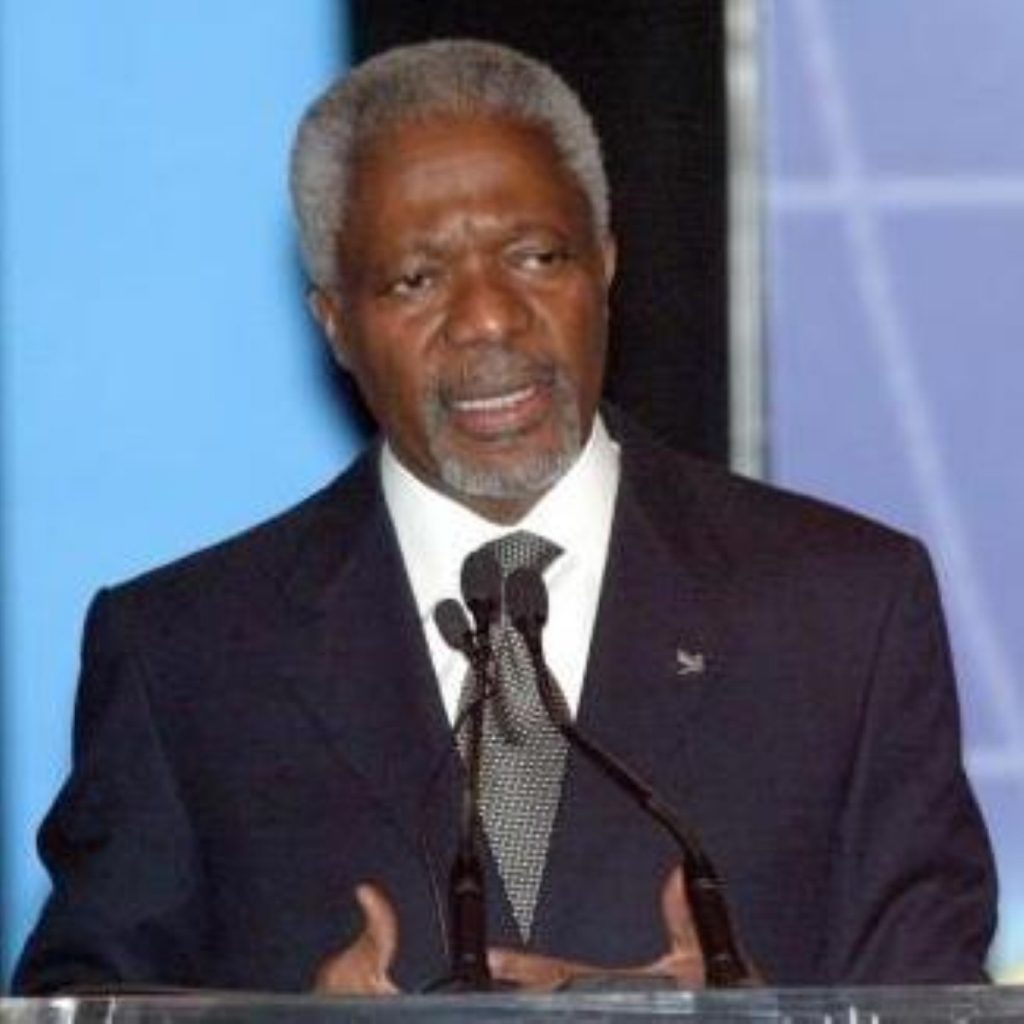Annan: Iraq situation worse than civil war
The life of ordinary Iraqis is worse now than under Saddam Hussein, the United Nations (UN) secretary general has warned.
Kofi Annan said the violence in the Middle Eastern country at the moment was “much worse” than the civil wars seen in Lebanon and other countries in recent years.
His comments come ahead of Tony Blair’s visit to Washington on Wednesday, to discuss plans to handover control to Iraqi forces with US president George Bush. The prime minister will arrive as the Iraq study group publishes it report into future strategy in the country.
On Saturday, more than 50 civilians were killed after three bombs exploded in Baghdad. Hours later, Mr Bush said he would keep supporting Iraqi prime minister Nouri al-Maliki, as that would help put the country “on a solid path to liberty and democracy”.
In an interview with the BBC, Mr Annan, who will quit his job on December 31st after ten years, was asked if the situation in Iraq could now be classified as civil war.
He noted the level of “killing and bitterness” and said: “A few years ago, when we had the strife in Lebanon and other places, we called that a civil war. This is much worse.”
Mr Annan also acknowledged many ordinary Iraqis may feel life is now worse than under Saddam Hussein, the dictator deposed by the US-led coalition in 2003.
“If I were an average Iraqi obviously I would make the same comparison, that they had a dictator who was brutal but they had their streets, they could go out, their kids could go to school and come back home without a mother or father worrying, ‘Am I going to see my child again?'” he told the BBC.
“And the Iraqi government has not been able to bring the violence under control. The society needs security and a secure environment for it to get on – without security not much can be done – not recovery or reconstruction.”
Mr Annan said there was a “very worrisome situation in the broader Middle East” and stressed the individual conflicts, in Israel-Palestine, Lebanon and Iraq, should be viewed as a “whole”.
He described the negotiations in the run-up to the Iraq invasion as one of the most difficult times of his whole period as secretary general, and said the UN itself had been damaged by the whole affair.
“It was extremely difficult, because I really believed that we could have stopped the war and that if we had worked a bit harder – given the inspectors a bit more time – we could have,” Mr Annan said.
He added: “[The UN] is healing but we are not there yet. It hasn’t healed yet and we feel the tension still in this organisation as a result of that.”
Liberal Democrat leader Menzies Campbell commented: “The secretary general’s pessimistic analysis is no surprise. All of the coalition’s predictions about Iraq have come to nothing.
“The country is at risk of breaking up, the quality of life is grossly inadequate and security is at an all-time low. Those who went to war against Iraq have a grave responsibility.”





-01.png)